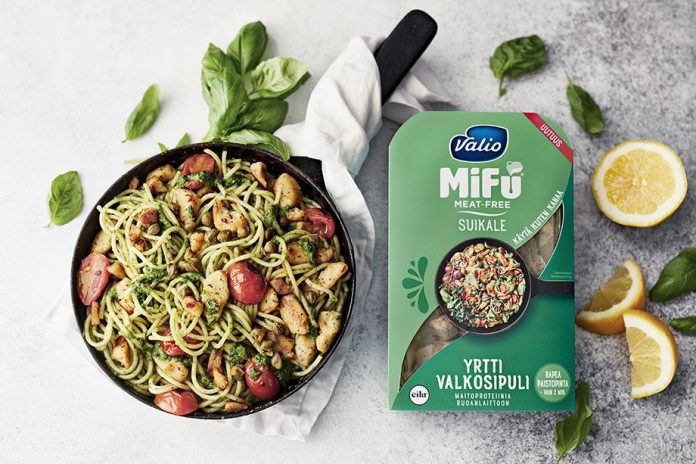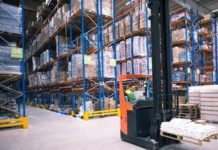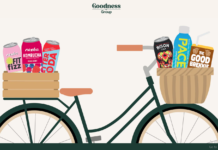
Valio is among the first food companies to begin using recycled plastic. According to the company, this development in packaging is part of a larger goal. The food company wants to cut milk’s carbon footprint to zero by 2035.
Plastic is needed for all food products that keep for a long time, as without the plastic protection, the food would spoil before it even reaches the fridges at home. Packaging has a vitally important task – to prevent a larger environmental hazard – food waste. Plastic becomes a problem if it ends up in nature.
Every one of us can help with our actions and recycle. It’s now possible to use recycled plastic in food packages. The company claims that Valio’s delicacy cheeses’ new packages are now made from at least 90% recycled plastic. Over 50% of Mifu slice and Mifu jauhis packages’ plastic is recycled. We intend to ramp up our recycled plastic usage in the future.
“Using recycled plastic reduces the plastic industry’s environmental emissions by 40 to 60% compared to making plastic from fossil oil. Our goal is that in 2020, all Valio sliced cheese packages in Finland are made from at least 50% recycled plastic. In the future, roughly 10% of all our packaging plastic in Finland will be recycled. That matters a lot when it comes to the environment,” says Juhana Pilkama, package development manager at Valio.
“Many struggles with plastic recycling and don’t know where different types of plastic go.” She says, “The most important thing is to recycle the plastic and it isn’t that big of a dead if a package ends up in the wrong bin once in a while.”
“All recycled plastic is sorted, washed carefully and checked for the material. Sorting machines handle possible mistakes, which does come with an additional cost, but that is the lesser of two evils compared to throwing all your plastic in mixed waste. In the future, we intend to clarify the recycling instructions we print on our packages to make recycling easier,” says Juhana Pilkama.
From plant-based packages to recycled plastic
In 2015, Valio introduced 100% plant-based cartons to Finland’s stores. These cartons are made out of wood, and the thin protective plastic film from the sugarcane industry’s waste. The caps are also fully plant-based.
“Packages have an environmental impact of only 2% of the entire food product’s environmental load when it comes to carbon dioxide. Despite that, we want to reduce our packaging’s environmental load further. At the same time, we are working with dairy farms, among others, to reduce milk production’s climate emissions,” says Pilkama.
IndiFoodBev — authentic, impactful and influential
An English-language food and beverage processing and packaging industry B2B platform in print and web, IndiFoodBev is in its third year of publication. It is said that the Indian food and beverage industries represent approximately US$ 900 billion in revenues which implies more than 20% of the country’s GDP. Eliminating the wastage on the farmside can help to deliver more protein to a higher number of the population apart from generating sizable exports. The savings in soil, seeds, water, fertilizer, energy and ultimately food and nutrition could be the most immense contribution that country is poised to make to the moderation of climate change.
To improve your marketing and grow sales to the food and beverage processing and packaging industry, talk to us. Our research and consulting company IppStar [www.ippstar.org] can assess your potential and addressable markets in light of the competition. We can discuss marketing, communication, and sales strategies for market entry and growth.
Suppliers and service providers with a strategy and budget for targeted marketing can discuss using our hybrid print, web, video, and social media channels to create brand recognition linked to market relevance. Our technical writers are ready to meet you and your customers for content.
The second largest producer of fruit and vegetables in the world is continuously expanding processing capacities and delivery systems with appropriate innovative technologies. We cover product and consumer trends, nutrition, processing, research, equipment and packaging from farm to thali. Get our 2025 media kit and recalibrate your role in this dynamic market. Enhance your visibility and relevance to existing markets and turn potential customers into conversations. Ask for a sample copy of our bi-monthly in print or our weekly IndiFoodBev eZine each Wednesday.
For editorial info@ippgroup.in — for advertisement ads1@ippgroup.in and for subscriptions subscription@ippgroup.in
Naresh Khanna – 10 February 2025
Subscribe Now











